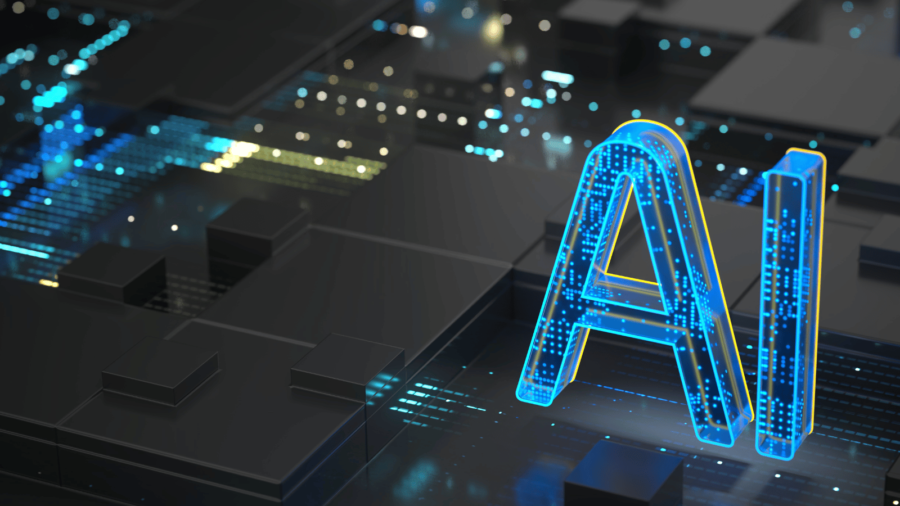Artificial intelligence or AI referred to the stimulation of human intelligence in machine that are programmed to think and act like. human. The ultimate goal of AI is to full form task that would normally required human intelligence such as learning, problem, solving,creativity in the least time taken. The evolution of AI has been marked by the significance improvement through out the year the evolution began in 1950 with the introduction of Turing test and coining the term artificial intelligence at the Dartmouth workshop. As the year passes many scientist and laboratories worked together to create a better and best version of artificial intelligence.
AI can be characterised into several types based on their functions and capabilities. As weak AI are design to perform specific task mean while general or strong AI are design to posessed the ability for understanding learning or applying knowledge across different task. Reinforcement Learning is a type of machine learning where an agent learns to make decisions by interacting with an environment to achieve a goal. Robotics combines AI with physical machines to perform tasks in the physical world. Artificial Neural Networks are the computational models inspired by the human brain designed to recognize patterns and make decisions.These types of AI can be further categorized based on their functionalities, such as supervised vs. unsupervised learning in machine learning or feedforward vs. recurrent networks in neural networks.
We have wide range of AI applications around various sectors and industries like in hospitals AI algorithm can detect various images like MRI’s X-Ray’s to diagnose disease. Even AI can detect the drug diagnosis process by predicting the biological activity of molecules. AI algorithms can detect fraudulent transactions by analyzing patterns and
anomalies in financial data. In transportation AI enables self-driving cars, trucks, and drones to navigate and operate without human intervention.AI can predict when transportation vehicles and infrastructure, such as trains and bridges, are likely to fail or require maintenance, reducing downtime and improving safety. In entertainment industry AI-powered recommendation systems, like those used by Netflix and Spotify, analyze user data to personalize content recommendations.
AI algorithms can generate realistic virtual environments and adapt the game difficulty level based on the player’s skill and performance. AI can generate and edit music, art, and video content, as well as assist in scriptwriting and video production. In agricultural aspects AI can analyze weather and climate data to predict crop yields, disease outbreaks, and optimal planting and harvesting times. This systems can monitor the health and behavior of livestock using sensors and cameras, enabling early detection of diseases and improving animal welfare.These are just a few examples of the diverse and growing applications of AI across various industries, demonstrating its transformative potential to revolutionize businesses, improve efficiency, and create new opportunities for innovation and growth.
AI offer multiple benefits across various industries in sectors as they can optimize workflows and processes, reducing operational costs and improving overall efficiency.AI algorithms can analyze vast amounts of data at high speeds, providing valuable insights and predictions to support decision-making and strategic planning. AI-powered recommendation systems can personalize content and product recommendations, increasing customer engagement and sales. It also enables the development of new products, services, and business models by leveraging advanced technologies and capabilities, such as machine learning, deep learning, and natural language processing. They can even can automate dangerous and difficult tasks that may be hazardous or challenging for humans, such as performing high-precision surgical procedures, and managing critical infrastructure. AI even powered medical imaging and diagnostic systems can assist healthcare professionals in diagnosing diseases, planning treatments, and monitoring patient progress, leading to improved healthcare outcomes and patient care. These are just some of the many benefits of AI, demonstrating its transformative potential to revolutionize industries.

Even though we have many advantages through AI but AI faces some Challanges too as AI can make biased decisions on data. Even Handling and processing large amounts of personal data raises concerns about privacy and security.AI systems can make mistakes, and in critical applications like healthcare or autonomous vehicles, these mistakes can have severe consequences.Training large AI models requires significant computational power, leading to high energy consumption. It also causes environmental concerns. Despite advances, AI still struggles with tasks that require creativity, intuition, and understanding context.Addressing these challenges requires collaboration between researchers, policymakers, and the public to ensure that AI technology is developed.
There are some future trends of AI such as To increase trust and transparency, there will be a push for AI systems to provide explanations for their decisions.There will be a greater focus on developing AI systems that are fair, unbiased, and respect privacy and human rights.Advancements in AI will enable machines to assist and even generate creative content like art, music, and literature.This approach allows AI models to be trained across multiple devices or servers without sharing the underlying data, enhancing privacy and efficiency etc. These trends suggest a future where AI becomes more integrated into various aspects of our lives, offering both opportunities for innovation and challenges.
In conclusion, AI is a rapidly evolving field with the potential to revolutionize various industries and aspects of daily life. While it offers numerous opportunities for innovation and efficiency, it also presents significant challenges, including ethical concerns, transparency issues. By addressing these challenges and harnessing the potential of AI in a responsible manner, we can create a future where AI enhances human capabilities, improves decision-making, and contributes to solving some of the most pressing global challenges.





Add a Comment